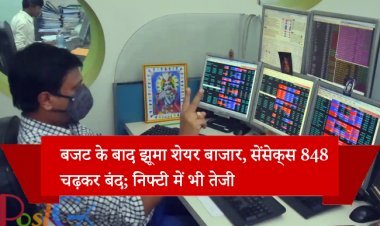Maximizing the Benefits and Minimizing the Risks: A Guide to Credit Card Usage
Unlock Financial Freedom: Discover Smart Credit Card Usage Tips – From Building Credit to Maximizing Rewards, Master Your Plastic Power with our Expert Insights!

Introduction
Credit cards have become an integral part of modern financial management, offering convenience, flexibility, and a wide array of rewards and benefits. However, they also pose certain risks if not used responsibly. In this blog, we'll explore the world of credit card usage, highlighting the advantages, potential pitfalls, and best practices for harnessing the full potential of these financial tools.
Chapter 1: Understanding Credit Cards
Before diving into credit card usage, it's essential to understand what a credit card is and how it works. We'll cover topics like:
-
What is a credit card? - A brief introduction to credit cards, including how they differ from debit cards.
-
Credit Limit - Explaining the concept of a credit limit and how it affects your spending capacity.
-
Interest Rates - Discussing the importance of APR (Annual Percentage Rate) and how it can impact your finances.
Chapter 2: Advantages of Using Credit Cards
Credit cards offer several benefits, which make them attractive to many consumers. This chapter will focus on:
-
Convenience - How credit cards simplify transactions, both in-store and online.
-
Safety and Security - Exploring how credit cards provide added protection against fraud and theft.
-
Build Credit History - Discussing how responsible credit card usage can positively impact your credit score.
-
Rewards and Perks - Highlighting the various incentives such as cashback, travel rewards, and discounts offered by credit card companies.
Chapter 3: Responsible Credit Card Usage
Responsible usage is crucial to avoid falling into debt traps. In this chapter, we'll discuss:
-
Budgeting - The importance of creating a budget and sticking to it to prevent overspending.
-
Timely Payments - Exploring the significance of making at least the minimum payment on time.
-
Avoiding the Minimum Payment Trap - Discussing why it's essential to pay more than the minimum to reduce the balance effectively.
-
Monitoring Your Statements - Emphasizing the need to review monthly statements for errors and unauthorized charges.
Chapter 4: Managing Credit Card Debt
Credit cards can lead to debt if not managed wisely. This section will cover strategies for managing and paying off credit card debt, including:
-
Debt Reduction Plan - How to create a plan to pay off outstanding balances efficiently.
-
Balance Transfer - Discussing when and how to use balance transfers to save on interest.
-
Credit Counseling and Consolidation - Exploring professional options for managing debt.
Chapter 5: Choosing the Right Credit Card
Not all credit cards are the same. This chapter will help readers understand how to choose the right credit card for their needs:
-
Types of Credit Cards - An overview of the various types of credit cards available, such as rewards cards, low-interest cards, and secured cards.
-
Comparing Offers - How to evaluate card offers based on interest rates, fees, and rewards programs.
-
Credit Score Requirements - Explaining how credit scores influence eligibility for specific cards.
Chapter 6: Protecting Your Credit
In this section, we'll discuss ways to safeguard your credit while using credit cards:
-
Identity Theft Prevention - Tips on protecting personal information to prevent identity theft.
-
Reporting Errors - The process of correcting errors on your credit report.
-
Managing Credit Limits - How to prevent maxing out your credit cards and negatively impacting your credit score.
Chapter 7: Conclusion
In the final chapter, we'll wrap up by summarizing the key takeaways and reminding readers of the importance of responsible credit card usage.
By the end of this comprehensive guide, readers will have a clear understanding of how to effectively use credit cards to their advantage while minimizing the risks associated with them. Remember, credit cards can be powerful financial tools, but it's essential to wield that power responsibly to build a secure and prosperous financial future.


























